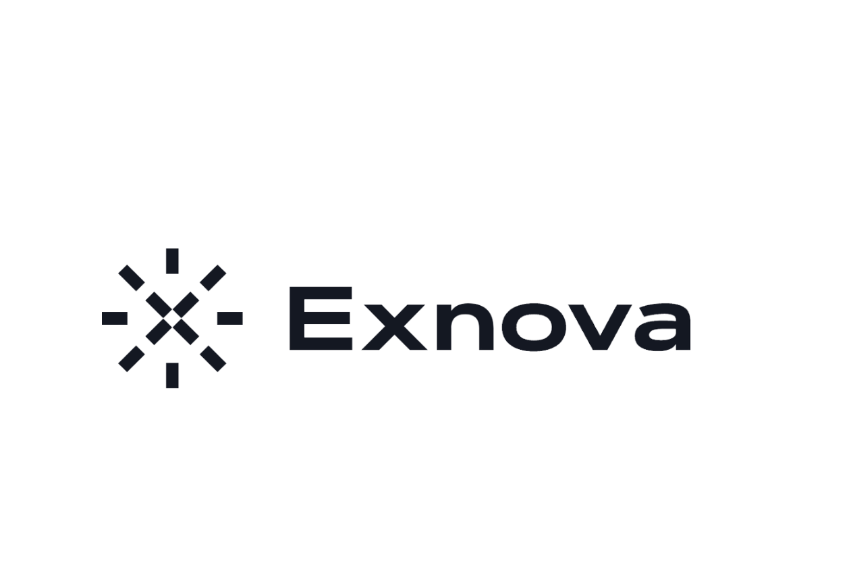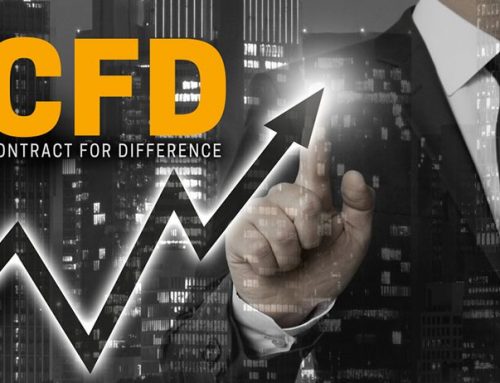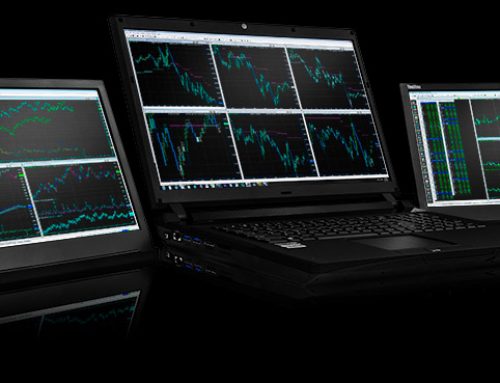CFDs are becoming a popular alternative for traders looking for short-term leveraged trading of stocks and other assets. In this expert guide, we will tell you what CFDs are and how CFD trading works. We also list and compare every regulated CFD Broker on the market, along with a detailed review for readers who want all the facts before signing up. Compare all brokers to find the one that suits your needs.
Popular Korea CFD Broker
What is CFD?
A contract for difference (CFD) is a tradable product that mirrors the underlying asset. When you trade CFDs, you enter into a buy (or sell) contract on margin and collect (or pay) the difference when you close your position. Unlike buying stocks or futures contracts, CFDs are derivatives, so you don’t own the underlying asset while trading. CFDs can be made to reflect virtually any financial instrument or market, including individual stocks, indices, currency pairs, interest rate products or bonds. If it moves and there is demand, you can check if there is a CFD.
CFDs are generally not recommended for new traders. If you need to read the paragraph above and google some of the terms used, you shouldn’t be trading CFDs yet. A solid understanding or leverage, margin, counterparty risk, and complexity of derivatives are encouraged. In general, CFDs are volatile and you should only trade what you want to lose, as you will be liable for further losses. Set up a demo account and experiment, but make sure you do your research and understand the product and its ins and outs before depositing real money into your account.
How do you trade CFDs?
The mechanics of CFD trading work in much the same way as buying and selling stocks, futures or forex. With CFDs, you don’t actually own the underlying financial instrument. What you trade is the difference between the price when you first enter the trade and when you exit the trade. Hence the name Contract for Difference. Most CFD providers require you to enter or exit positions by crossing spreads. Let’s look at a trading example for clarity.
You want to buy 100 “stocks” in Company XYZ, believing that the price is increasing in the short term.
The current price is $10.55, the bid is $10.50, and the offer is $10.60.
- Click buy across the spread and pay $10.60 for 100 “shares”
- I used $53 margin on the position instead of $1050 + commission if I bought the stock itself (assuming 5% margin).
- The stock quickly moves to a target of $11 which I decided to sell.
- Clicking SELL across the spread fills you with $10.95 for 100 “Shares”
Congratulations! You made a profit of $35 (“share” x 35c per 100) on your position.
As you can see, leverage is strong. A profit of $35 on a $53 margin (66%) is a much higher ROI than the 4-5% profit you would get from buying the underlying, even if the total amount was a bit less.
Herein lies the appeal of leverage and CFDs. Of course, the reverse is also possible. Corresponding actions may erase all capital (and more) in your CFD account.
Why should I trade CFDs?
Because CFDs are leveraged products, they offer significant advantages and disadvantages over regular stocks or futures.
Pros:
- Inference: Because of margin, CFDs are commonly used by traders who want to trade short-term or intraday trades. Depending on the broker’s margin requirements and fee structure, it can be expensive to keep overnight.
- Leverage: The amount of leverage available varies from broker to broker depending on product and market. The biggest advantage is the potential ROI that traders can achieve using CFDs when compared to regular stocks. As you can see from the example above, you can easily create an ROI of 50% or more for any used margin, which is very attractive to risk-savvy speculators.
- Margin: CFD Brokers only require a margin of 2% to 20% on your current position, depending on equipment and volatility. Like forex, this gives you access to overpriced stocks that can be traded or non-tradable on a larger than non-tradable basis. For example, to buy 100 shares in Apple at $145, you will need $14500 in your stock account plus fees. With the CFD Broker, you can trade 100 shares at $725 on margin and 10 shares at $72.50. This opens up new markets and opportunities.
- Worldwide market exposure: Most CFD providers offer a range of markets. You can trade Korean DAX just as easily as Australian stocks. This can be done with one account, without expensive data or running costs.
- Fees: Trading fees can increase very quickly, especially with retail brokers. CFDs have no fees, only spreads (representing your own challenge).
- Hedging: CFDs offer people with stock portfolios the opportunity to quickly and inexpensively hedge long stock positions. Options can be tricky and difficult to structure, especially when used to hedge a position. CFDs offer savvy traders an inexpensive alternative and a variety of hedging opportunities.
Cons:
- Use: This is a double-edged sword. It is much cheaper to buy 100 shares worth of stock in Apple with CFDs, but doing so exposes you to significant risk. A small movement of the fundamentals can cause more than your position value to disappear, leaving you in the red with your broker.
- Spread Cross: To enter or exit a CFD position, you must cross the spread. There are no limit orders. This means you are always paying a premium to enter or exit. This is the price paid for access to margins. While this may seem insignificant, paying spreads can add a significant amount of money, especially if the trader is active. Also, some strategies are very difficult to execute (e.g. scalping).
- Betting against a broker: CFDs are contracts with a broker. They profit if you lose. This raises many conflict of interest issues. It is very important to research brokers, see if they are regulated (not many) and read online reviews. Please contact us directly if you have any questions before depositing money into your account.

Opponent risk
When trading CFDs, an agreement must be concluded with the broker for the future movement of the financial instrument. Unlike the underlying trade, the counterparty to the trade is the broker. As you know, this creates numerous conflict of interest issues and regulators continue to try to balance protecting customers from predatory practices and allowing traders the freedom to trade what they want.
A skeptic might argue that trading CFDs with a broker is like gambling in a casino. It is in the casino’s best interest that you are a happy and smiling customer.
Believers argue that getting longevity from clients is in the CFD broker’s interest, making enough money on spreads and volumes that clients have no incentive to go wrong. Shady practices will end up being reported to regulators, hurting business and profitability.
The takeaway is that traders should do their research on CFD brokers and regulations in their country. A good place to start is our list of recommended brokers.
How to compare brokers
- Spread / Commission
- Leverage and margin requirements
- Trading platform
- Deposit and withdrawal options
- Additional Features
- regulations
- Mobile app
Each section is described in detail below.
spread-or-commission
Spreads or commissions affect every trader and every trade. It represents the ‘cost’ of making a transaction. Therefore, it is important to compare one broker to another. However, direct comparisons may not be straightforward. Spreads vary from asset to asset and may also change daily if the asset is volatile. So, a broker can have the smallest spread on a forex pair, but the largest spread on an index, and the figures can change the next day.
Depending on the asset, the broker will be the cheapest or the most expensive. So, when comparing spreads with your broker, check the spreads of the assets you will be trading most.
leverage-and-margin
Margin refers to the funds a trader must deposit (and commit) to start trading. So a £1,000 trade in the GBP/USD currency pair only needs to open £50. However that trade had exposed the trader to a £1,000 worth of risk (the risk of losing the entire investment is very small, but it is the value of the position) – hence the warning attached to CFD trading “loss exceeds initial deposit” Can “.Margin is also known as ‘leverage.’ In this case, leverage is often expressed as a multiple, so 200:1 represents leverage of 200x the deposit. The equivalent margin is 0.5% So, when comparing brokers, lower margins require smaller deposits.This is important for some traders but less important for others.
Trading platform
Trading platforms can be thought of largely the same. If a trader finds a particular platform difficult to use, this could be a mistake. Yes, most platforms have similar features, but may differ in usability and look and feel, and some may not be suitable for all traders.
It is important to trade software that is familiar and easy to use. Because the trading platform doesn’t match the price for whatever reason, traders can miss the price or make worse mistakes. The trade button may be very obvious to some users, but if you’re a trader who accidentally starts a big trade, you may have wanted your broker choice based on the platform’s clarity. All of the brands listed here offer Demo Account – try before you buy .
Deposit and withdrawal options
This is becoming less important as brokers add more and more payment methods. However, the list of withdrawal methods is limited, so if you’re having trouble making payments or getting money from your broker, you know how important they can be. Please check first.
Features (charts, technical analysis, research)
If you are looking to research trades through a broker or software, you want to use the best research tools available. Chart standards vary greatly. Some brokers (notably ETX Capital) offer top-notch charting capabilities with a range of technical analysis tools that will satisfy even the most avid technical analyst. However, some brokers assume traders don’t do their research or do it elsewhere. Their tools lag behind their competitors. Test on a demo account to see if the broker offers the standards you need.
other factors
Other factors that enable new traders to compare CFD brokers include the quality and availability of mobile trading applications. For many traders, moving trades will be important. Others will be happy not to use the mobile app.
Regulation should be a key criterion for any broker. This page contains only regulated CFD Brokers. This is less of a comparison factor than a prerequisite.
Bonuses can sometimes unsettle traders. Terms and conditions are always important when trading bonuses. They can often over-trade new customers. However, when used correctly, bonuses can be useful as they mean trading more funds or risk-free trading for both. Short-term bonuses will not make up for expensive spreads in the long-term.
Our review covers all the elements needed to compare CFD Brokers, and as mentioned earlier, all CFD Brokers listed on the page offer demo accounts. Thus, traders can take the time to read our detailed review and try out the platform itself before making a choice. After you have all the information, you can decide which CFD Broker suits you best.
Find the best CFD brokers
Use these steps to make an informed decision about which broker is best for you and your unique investing style.
- Consider your trading style. For example, what assets do you trade and how often? Size of each trade, overall trade target, etc.
- Choose a CFD Broker that fits your trading style and strategy
- Take advantage of the demo account. Compare each trading platform you list.
- Make the best choice after using and trading on each platform.
- Deposit real money and trade
Remember: Traders can use multiple broker accounts and use the account with the best conditions for a particular trade or asset. Gold trading with one company, US stocks with another. Use the account that offers the best deal for your particular trade.










